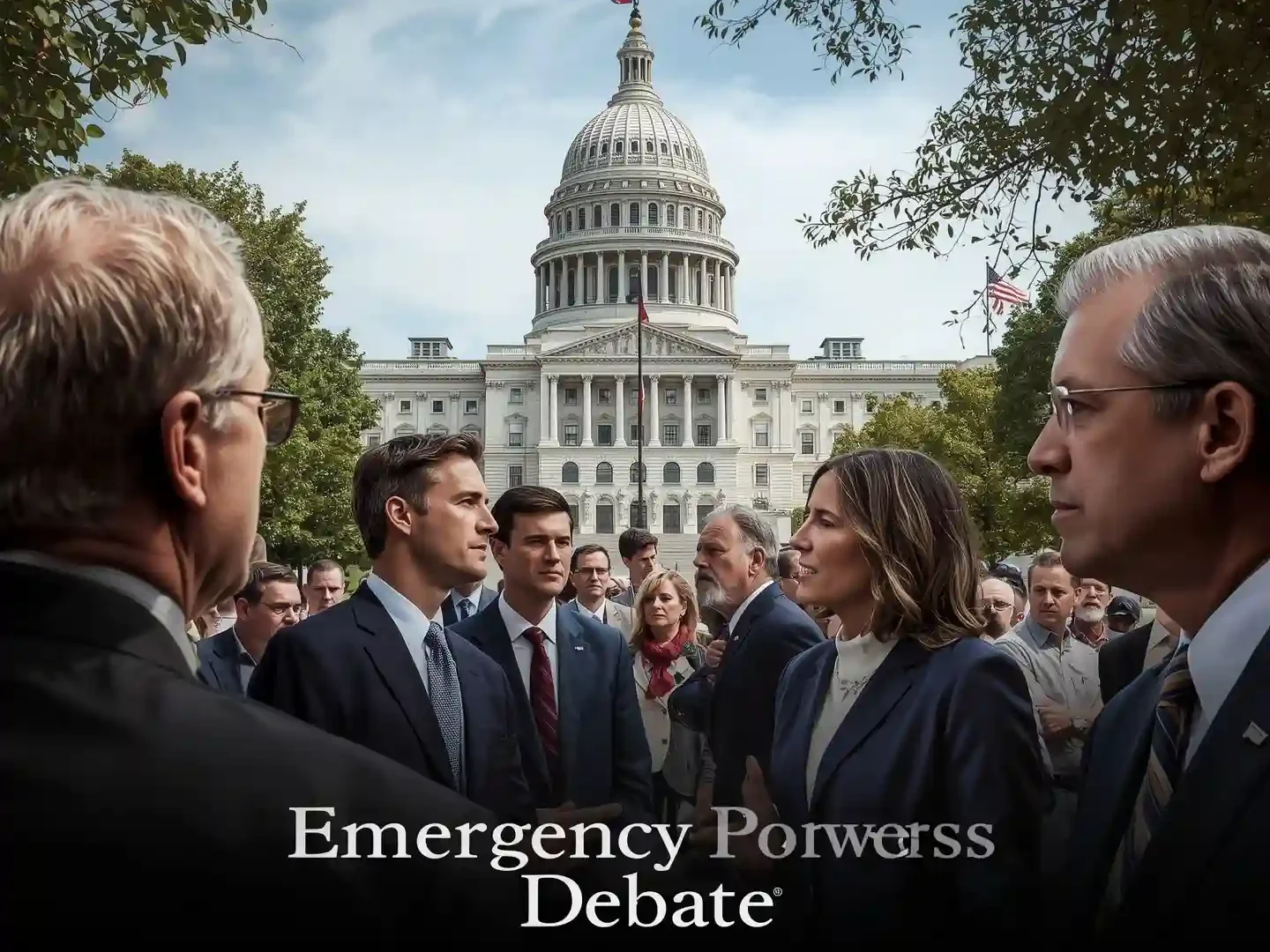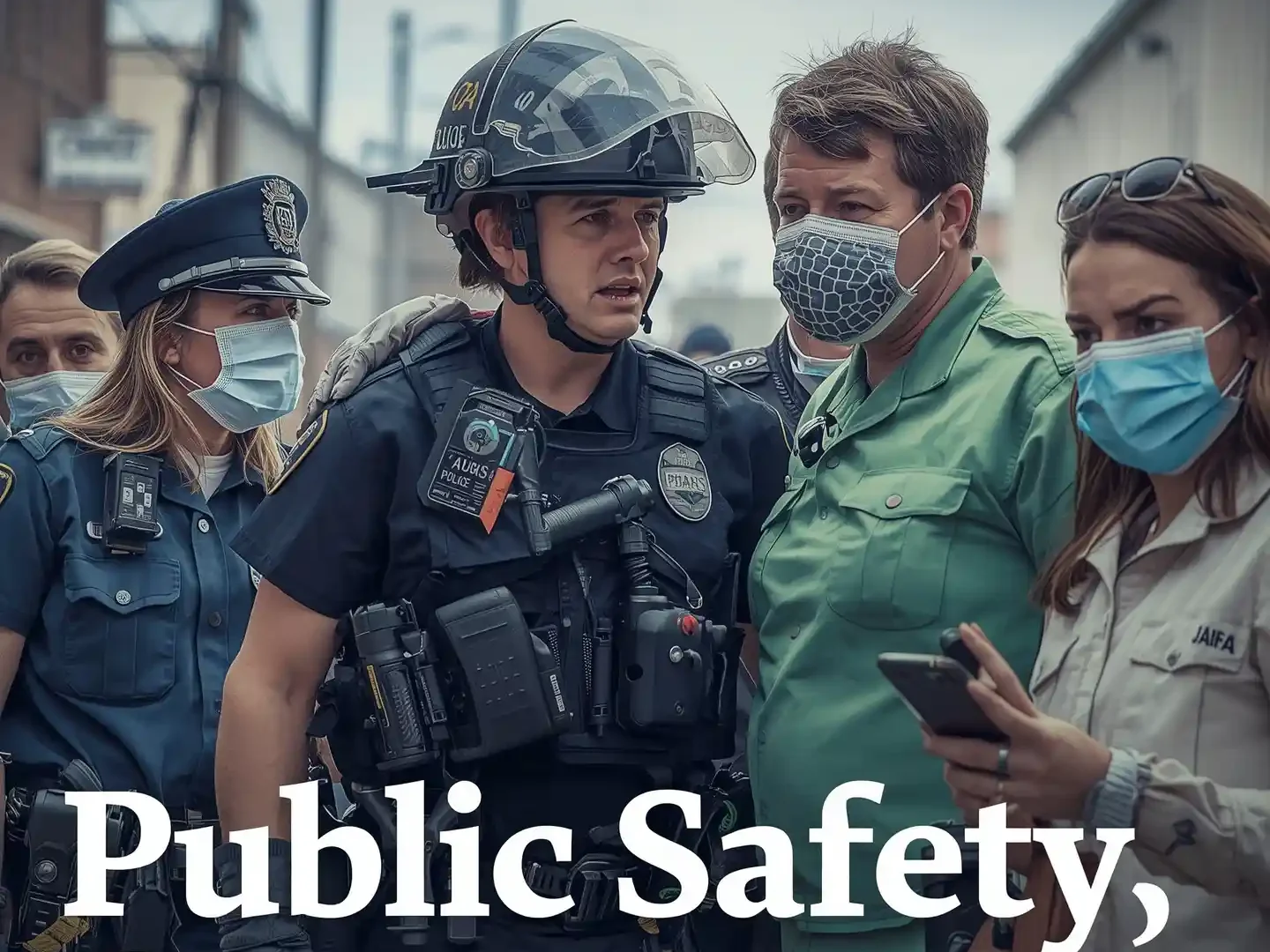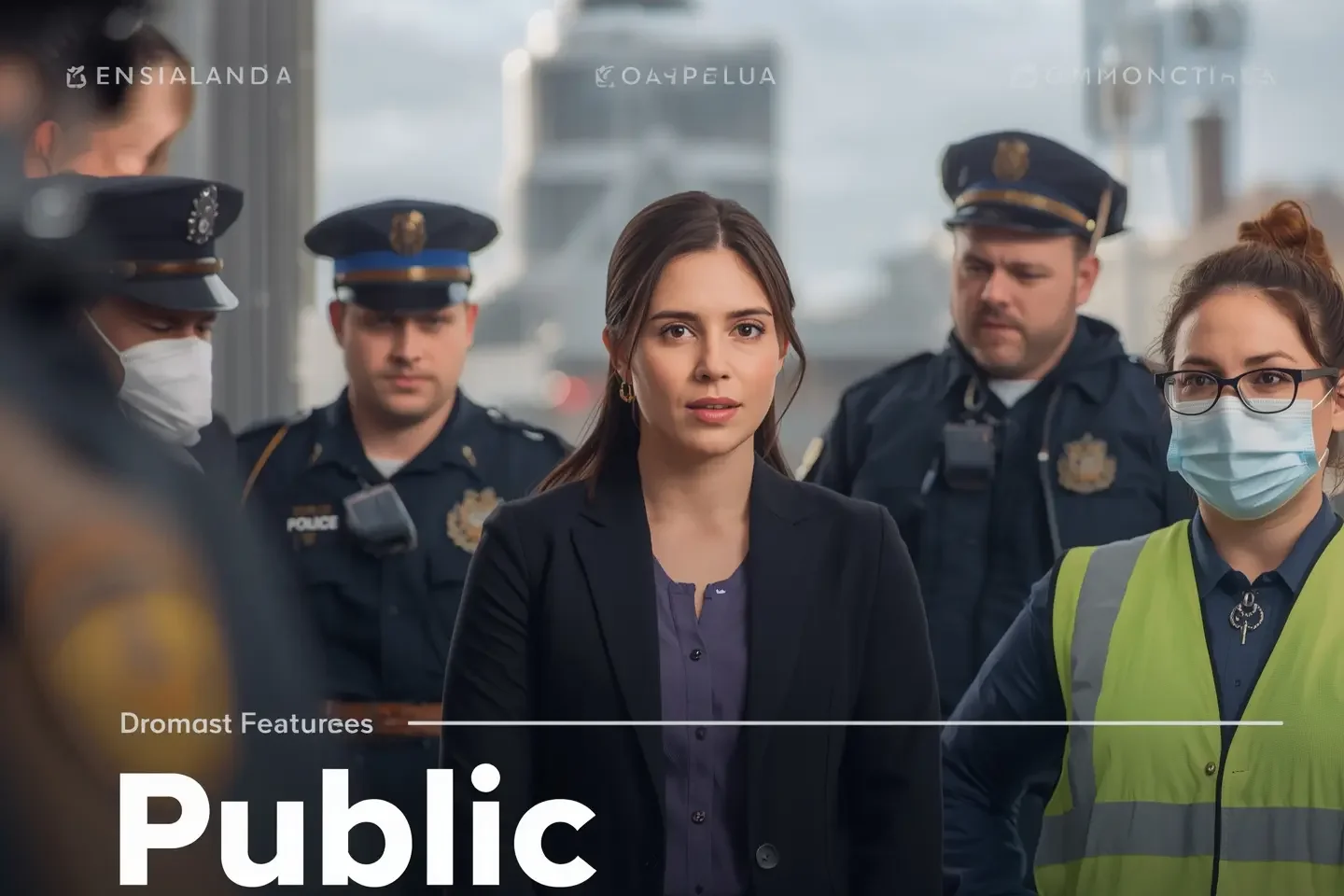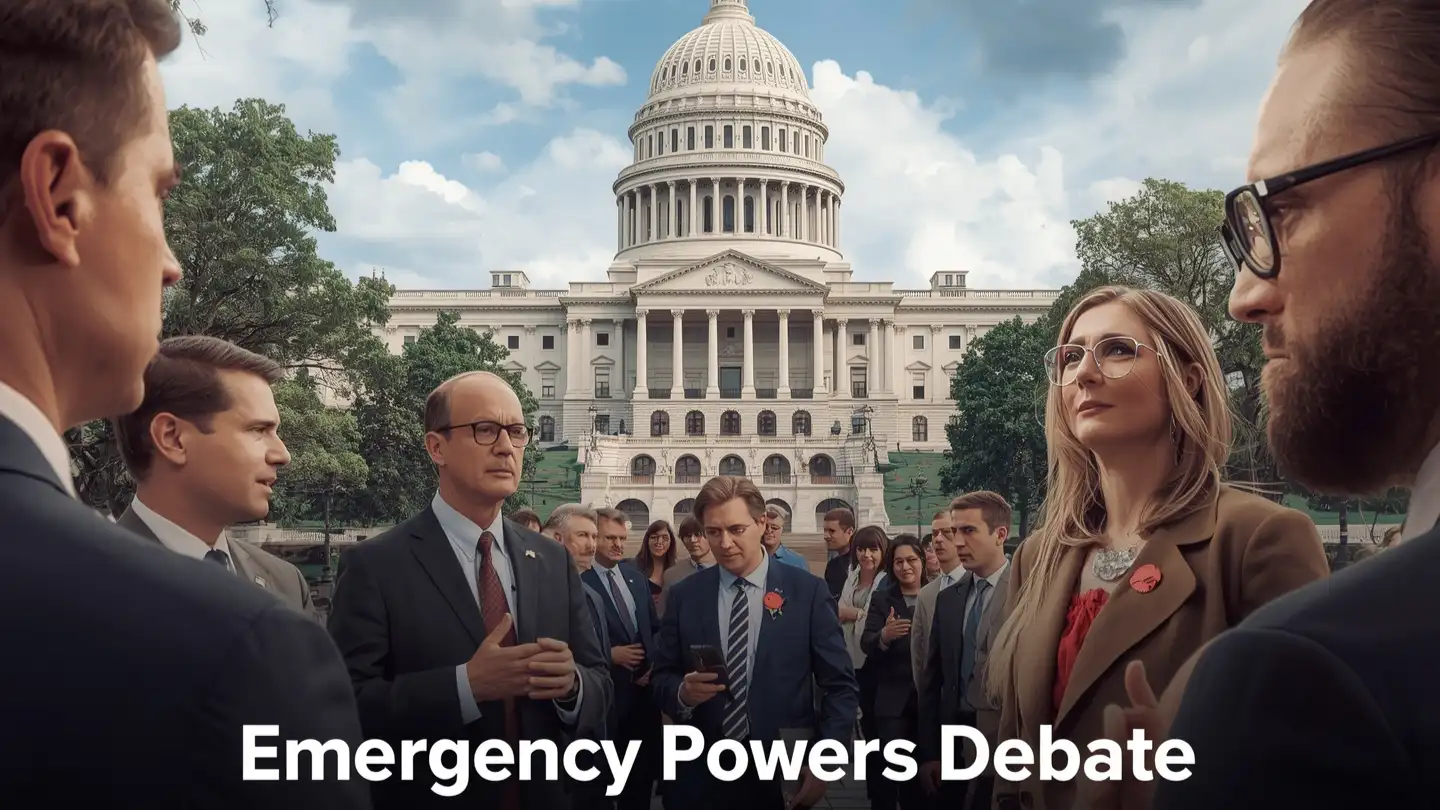New Wisconsin Bill Would Limit the Use of Emergency Powers by Local Government Leaders
In Wisconsin, political debate has intensified over the balance of authority between state lawmakers and local government leaders. A newly proposed Wisconsin emergency powers bill has sparked both support and criticism, as it targets to set clear regulations on when and how local officials may exercise emergency powers. While some see it as a safeguard for democracy, others worry that it may weaken public safety governance during times of crisis.
This article provides a deep dive into the bill, its motivations, potential influences, and the larger conversation surrounding governance, accountability, and community resilience.
What is the new Wisconsin emergency powers bill?

The Wisconsin emergency powers bill is designed to restrict the unilateral authority of local officials during emergencies. Traditionally, local mayors, county executives, and health officials have been able to declare emergencies and enforce rules ranging from curfews to business restrictions.
Proponents of the bill argue that these powers, though necessary in moments of crisis, should be balanced with legislative oversight to prevent overreach.
The legislation introduces emergency declarations limits ensuring that emergency rules cannot be extended indefinitely without approval from elected representatives. By doing so, lawmakers hope to strike a balance between rapid response in times of need and long-term accountability to the public.
At the core of the debate is the concept of local government authority. Supporters of the bill claim it restores democratic checks and balances, while critics insist it ties the hands of officials who must act quickly to protect citizens.
How does the Wisconsin bill limit local government leaders?
Under the new proposal, emergency declarations made by local leaders would be time-bound. For example, if a mayor or county official issues a declaration, it could last for a brief, specified duration—often 30 days—unless renewed with the consent of governing bodies.
This directly challenges the broad local government authority that was regularly exercised during the COVID-19 pandemic, when emergency orders were extended multiple times. Advocates argue that restricting this power ensures that citizens have a say, through their elected representatives, in how long emergency rules remain in place.
| Area of Authority | Change Under Wisconsin Emergency Powers Bill |
|---|---|
| Emergency Declarations | Limited to a fixed period (around 30 days); extensions need legislative approval. |
| Extensions of Emergency Orders | Local officials cannot extend orders alone; governing bodies must approve. |
| Public Health Restrictions | Health officers’ powers reduced; prolonged measures need legislative oversight. |
| Decision-Making Power | Authority shifts from individuals to elected legislative bodies for accountability. |
| Public Safety Governance | Prioritizes transparency and checks over unilateral quick action by local leaders. |
The bill also emphasizes legislative oversight, giving councils, boards, and state lawmakers more influence over decisions that affect entire communities. While this may promote transparency, critics fear it could slow down urgent action.
From a governance perspective, the bill seeks to redefine how public safety governance should function—balancing the need for quick responses with the principles of democracy and accountability.
Who supports the Wisconsin emergency powers legislation?
Support for the Wisconsin emergency powers bill largely comes from lawmakers who believe in strengthening the role of elected bodies. Many state legislators have argued that unelected officials, such as public health administrators, exercised too much authority during the pandemic.
Business associations and advocacy groups have also supported the measure, claiming that prolonged restrictions harmed the economy and small businesses. They see the bill as a step toward fairer decision-making processes, where legislative oversight ensures diverse perspectives are considered.
For these supporters, emergency declarations limits are essential not only to protect individual freedoms but also to prevent potential misuse of power. They believe that the system of public safety governance should include checks that prevent unilateral decisions lasting longer than truly necessary.
Why is Wisconsin restricting emergency powers of local officials?
The reasoning behind restricting emergency powers is rooted in the experiences of the last several years. During public health crises, natural disasters, and civil unrest, local leaders used sweeping powers to enforce rules. While some communities benefited from decisive action, others felt restricted by orders that seemed excessive or prolonged.
Here’s a simple table explaining why Wisconsin is restricting emergency powers of local officials:
| Reason | Explanation |
|---|---|
| Prevent Overreach | Ensures local leaders cannot hold emergency powers indefinitely without checks. |
| Legislative Oversight | Shifts authority to elected bodies for accountability and transparency. |
| Citizen Representation | Gives residents a stronger voice in rules that affect daily life. |
| Balance of Power | Restores checks and balances between local government authority and lawmakers. |
| Public Safety Governance | Aims to create clear, limited rules while keeping community protection in focus. |
The new Wisconsin emergency powers bill aims to ensure that decisions of such importance cannot bypass democratic channels. By setting emergency declarations limits, the law would require leaders to collaborate more closely with governing councils and legislative bodies.
Supporters argue that this reaffirms the principle of local government authority as accountable authority—not unchecked. They believe this will strengthen trust between residents and officials, ensuring that governance remains both responsive and transparent.Opponents, however, argue that the bill could undermine public safety governance, as leaders may hesitate to act quickly in moments when immediate measures are critical.
What impact will the Wisconsin bill have on public safety?

The most debated consequence of the bill lies in its potential impact on community protection. If the Wisconsin emergency powers bill passes, local officials would need to secure approval for extended emergency orders, meaning some responses could be delayed.
From a positive standpoint, this strengthens legislative oversight and prevents potential misuse of authority. Citizens gain more influence over policies that affect them, and officials remain accountable for their decisions.
On the other hand, critics caution that strict emergency declarations limits could hamper responses during fast-moving crises, such as floods, public health outbreaks, or security threats. If local leaders must wait for approval before taking action, the window of effective response could shrink.
This ongoing debate reflects larger questions about public safety governance. Should governance prioritize rapid response above all else, or should it emphasize accountability, even if it risks slower action? The bill sits at the heart of this tension.
When will the Wisconsin emergency powers bill take effect?
As of now, the proposal remains under discussion in legislative chambers. If approved, the Wisconsin emergency powers bill would likely take effect in stages, allowing time for local governments to adjust procedures.
Lawmakers are considering frameworks to ensure smooth transitions. For example, emergency powers already in place may be phased out under new emergency declarations limits, giving both leaders and citizens clarity about the rules moving forward.
The role of legislative oversight will grow stronger once the law is active, shifting decision-making from individuals to representative bodies. Local councils and state legislators will play a central role in approving extensions of emergency declarations.
For residents, the timeline matters because it directly affects how quickly public safety governance changes in practice. Communities will need to adapt to new systems of checks and balances, ensuring both safety and accountability remain priorities.
What are the pros and cons of limiting emergency powers in Wisconsin?
Like any major legislative reform, the bill comes with both advantages and risks.
Pros
- Checks and balances: By requiring legislative oversight, the bill ensures decisions are not made unilaterally.
- Citizen representation: Residents have more influence in shaping policies that affect their daily lives.
- Accountability: Limiting local government authority prevents long-term rule without approval.
- Transparency: Clear emergency declarations limits define how long measures can last, reducing uncertainty.
Cons
- Delayed response: Emergencies often require immediate action, and waiting for approvals could waste precious time.
- Weaker local leadership: The bill may discourage decisive action if leaders fear their authority will be questioned.
- Risk to safety: In fast-moving crises, delayed decisions could undermine public safety governance.

| Pros | Cons |
|---|---|
| Ensures legislative oversight and accountability | May delay urgent responses during crises |
| Increases citizen representation in decision-making | Could weaken decisive local leadership |
| Prevents misuse of local government authority | Limits flexibility for fast action |
| Promotes transparency in public safety governance | Risk of slower implementation of emergency measures |
Ultimately, the Wisconsin emergency powers bill represents an attempt to reconcile democracy with practicality. Whether it succeeds will depend on how well lawmakers, leaders, and residents navigate this balance.
Frequently Asked Questions (FAQs)
Q. What is the Wisconsin Bill AB 102?
AB 102 is a legislative proposal in Wisconsin aimed at modifying emergency powers and clarifying local government authority during crises.
Q. What is the Assembly Bill 466 in Wisconsin?
AB 466 addresses regulations related to [specific topic, e.g., education, health, or local governance], providing updated rules and accountability measures for affected sectors
Q. What is the Death with Dignity Bill in Wisconsin?
The bill would allow terminally ill adults to legally request physician-assisted death under strict safeguards and medical supervision.
Q. What is the Wisconsin education deduction?
A tax deduction allowing Wisconsin residents to reduce taxable income for qualifying education expenses, like tuition, fees, or school supplies.
Q. Does the state of Wisconsin pay for funerals?
Wisconsin may provide limited funeral or burial assistance for low-income residents or those on Medicaid, covering partial costs.
Conclusion
The debate over the Wisconsin emergency powers bill highlights one of the most fundamental questions in governance: how to balance speed with accountability. By introducing emergency declarations limits, increasing legislative oversight, and redefining local government authority, the bill seeks to reshape how communities respond to crises.
For supporters, it represents a victory for democracy and public safety governance rooted in accountability. For critics, it risks undermining the very protections it seeks to safeguard.
As Wisconsin continues to deliberate, the state becomes a case study for the nation on how to balance emergency power, freedom, and responsibility. The outcome will not only affect local communities but may also set a precedent for how other states approach the same dilemma.
Further Readings:
- Protests Against Maharashtra Security Bill 2025
- Age Verification Laws 2025: How These Rules Keep Kids Safe Online
- Maharashtra Labour Law 2025: Powerful Reforms or Risky Move for Workers?


Write more, thats all I have to say. Literally, it seems as though you relied on the video to make your point. You clearly know what youre talking about, why waste your intelligence on just posting videos to your weblog when you could be giving us something enlightening to read?
Some truly interesting details you have written.Helped me a lot, just what I was searching for : D.
I discovered your blog site on google and check a few of your early posts. Continue to keep up the very good operate. I just additional up your RSS feed to my MSN News Reader. Seeking forward to reading more from you later on!…
Hey very cool web site!! Man .. Excellent .. Superb .. I will bookmark your blog and take the feeds alsoKI’m satisfied to search out numerous useful information right here in the post, we need develop more strategies on this regard, thank you for sharing. . . . . .
Good perspective
Well researched
very good submit, i definitely love this web site, carry on it
Ive been researching this topic for weeks, and this post filled in all the gaps. Your explanations are clear and easy to followthank you!
Your point of view caught my eye and was very interesting. Thanks. I have a question for you. https://www.binance.info/register?ref=IHJUI7TF